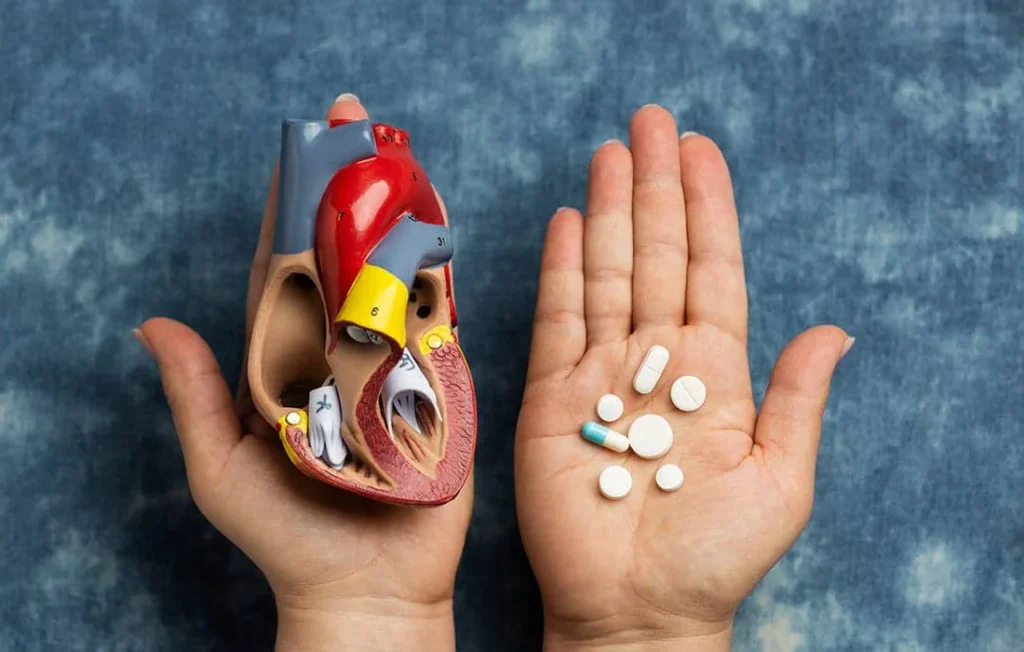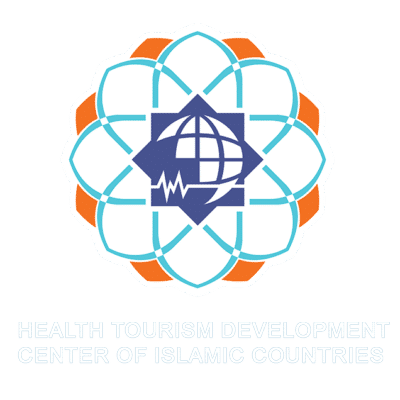As you embark on your weight loss journey following gastric sleeve surgery, it is critical to understand how to properly manage your medications. The gastric sleeve procedure significantly reduces the size of your stomach, so the way your body absorbs and metabolizes medications changes. Some medications may become ineffective or even dangerous. It is essential to consult with your doctor regarding any prescription or over-the-counter drugs you are taking. They will determine whether the dosage or type of medication needs to be adjusted or switched to an alternative. Do not make any changes to your medications without first speaking to your doctor. Following their guidance carefully during this transition period will help ensure your health and safety as your body adapts to its new anatomy. The do’s and don’ts of medications after surgery can be complicated, but with the support of your medical team, you will get through this important step toward better health.
Pain Medications to Avoid
After gastric sleeve surgery, it is important to avoid certain pain medications in order to prevent complications and ensure proper healing.
Nonsteroidal Anti-Inflammatory Drugs (NSAIDs)
NSAIDs like ibuprofen (Advil, Motrin) and naproxen (Aleve) should be avoided for at least 3 months post-op. These medications can irritate the stomach lining and slow the healing process. Acetaminophen (Tylenol) is a safer alternative for pain relief during recovery.
Opioids
Opioid pain medications also pose risks after bariatric surgery. Opioids can cause nausea, vomiting, and constipation, which are dangerous side effects following gastric sleeve. If opioids are necessary for severe pain management, use only as directed by your surgeon for a limited time. Stop use and call your doctor if you experience negative side effects.
Aspirin
Aspirin acts as a blood thinner and can increase the risk of bleeding or ulcers after surgery. Do not take aspirin for at least 2 weeks following your gastric sleeve procedure, unless advised otherwise by your doctor.
In summary, the safest approach is to avoid NSAIDs, opioids, and aspirin whenever possible after gastric sleeve surgery. Acetaminophen and other non-drug methods like ice packs, heating pads, and physical therapy are better options for pain management during your recovery. Be sure to talk to your doctor about any medications or supplements before taking them to ensure proper healing and the best results from your Weight Loss Surgery in Iran procedure.
Anti-Inflammatories: Use Only as Directed
After gastric sleeve surgery, it’s critical to avoid certain medications that could cause complications or reduce the effectiveness of your procedure. Anti-inflammatory drugs are particularly concerning.
Unless otherwise directed by your doctor, do not take any over-the-counter anti-inflammatory medications like ibuprofen (Advil, Motrin) or naproxen (Aleve) for at least 3 months post-op. These drugs can irritate your stomach lining and slow the healing process.
Acetaminophen (Tylenol) may be used sparingly for pain, but follow your surgeon’s dosage instructions carefully. Excessive use of acetaminophen can also cause stomach issues or liver damage.
Steroidal anti-inflammatories like cortisone or prednisone should not be taken unless prescribed by your doctor to treat a specific condition. Steroids may counteract the impact of weight loss surgery and stimulate appetite.
Three months after surgery, your doctor may approve limited or occasional use of some over-the-counter anti-inflammatory drugs if needed and if tolerated. However, these should always be taken with food and in moderation. It is best to try alternative methods for pain and inflammation relief first, such as:
- Applying ice or heat
- Gentle exercise like walking
- Physical therapy or massage
Your new stomach pouch is still healing, so make anti-inflammatory medications an absolute last resort. When in doubt, call your doctor’s office to discuss appropriate options and get their recommendation based on your individual progress and needs. Your long term success depends on following the rules carefully during this crucial time.
Be Careful With Antibiotics
After gastric sleeve surgery, it is critical to be extremely careful with any medications you take, especially antibiotics. Antibiotics can potentially interfere with the protective lining of your stomach and intestines that are still healing from the procedure. Some key points to keep in mind:
Only Take Antibiotics When Absolutely Necessary
Only take antibiotics if prescribed by your doctor to treat a specific infection. Do not take leftover antibiotics or share prescriptions with others. Only take antibiotics for the full course of treatment exactly as prescribed to avoid building antibiotic resistance or disrupting your gut flora.
Choose Antibiotics Carefully
If antibiotics are essential, your doctor will prescribe ones that are less irritating and tailored to your needs. Broad-spectrum antibiotics, especially fluoroquinolones like Ciprofloxacin, should be avoided when possible. Narrow-spectrum penicillins or cephalosporins are typically better options. Your doctor can help determine which antibiotics are safest based on your unique situation.
Take a Probiotic and Stay Hydrated
To maintain gut health, take a high-quality probiotic with at least 10 to 15 billion CFUs per serving, especially when on antibiotics. Staying well hydrated, consuming around 64 ounces of water per day, will also help reduce irritation from the antibiotics and keep your gut lining intact.
Watch for Side Effects
Be on alert for unpleasant side effects from the antibiotics like nausea, vomiting, diarrhea or abdominal pain. Call your doctor right away if symptoms are severe or last more than a couple of days. They may switch you to a different antibiotic or adjust the dosage to minimize problems.
By closely following these recommendations, you can safely take necessary antibiotics without compromising your gastric sleeve results or gut health. Always put your health and recovery first by consulting your doctor before taking any medications after surgery. With time and patience, your body will continue to heal and you can get back to living life fully.
Hold Off on Supplements and Vitamins Initially
After gastric sleeve surgery, it is important to avoid certain medications and supplements for a period of time as your body adjusts.
Hold Off on Supplements and Vitamins Initially
For the first 30 days post-op, do not take any supplements, vitamins or minerals unless specifically instructed to do so by your surgeon or dietitian. Your body is still healing, and the dietary changes in the initial stages provide the nutrition you need. Adding supplements too soon could lead to nausea or an upset stomach as your digestive system is still adjusting.
After 30 days, you may gradually add supplements and vitamins back into your routine under the guidance of your medical team. Key supplements to consider include:
- A multivitamin to ensure you get essential nutrients. Look for a “complete” or “balanced” formula for bariatric patients.
- Calcium citrate or another form easily absorbed. Gastric sleeve surgery can impact calcium absorption, so calcium supplements are typically recommended lifelong.
- Vitamin B12. Important for metabolism and the nervous system, a B12 deficiency is common after bariatric surgery. An oral supplement or injection may be needed.
- Vitamin D. Important for bone health and often low in bariatric patients. Your doctor can check your blood levels and determine if a supplement is needed.
- Iron. Gastric sleeve surgery can increase the risk of anemia or low iron. Your doctor may recommend an iron supplement, especially for menstruating women.
It is important to start slowly with supplements and follow the recommendations from your medical team. Taking supplements, vitamins or minerals too soon or in excess amounts could lead to unpleasant side effects as you heal and adjust to your new anatomy and dietary changes. Close follow up with your doctor and dietitian in the months after surgery is key to ensuring proper nutrition and avoiding deficiencies.
FAQs: Common Questions About Medications After Gastric Sleeve
After gastric sleeve surgery, it is important to be aware of how medications may be absorbed and interact differently with your body. Some medications may need adjustments or may need to be avoided altogether. It is best to consult your doctor regarding any medications, vitamins or supplements.
Always consult your doctor with any questions or concerns you have about medications after your gastric sleeve procedure. Close monitoring and possible adjustments to your medication regimen will be needed to ensure maximum health benefits and avoid complications. With the right management plan customized for your needs, you can continue taking necessary medications safely after surgery.
What medications should I avoid?
Certain medications should be avoided after gastric sleeve surgery. These include:
- Nonsteroidal anti-inflammatory drugs (NSAIDs) such as ibuprofen or naproxen. These can irritate the stomach lining and cause ulcers.
- Sustained-release or time-release medications. These may not be properly absorbed after surgery. Your doctor can prescribe non-sustained release options instead.
- Oral contraceptives or hormone replacement therapy pills. These may not be as effective after surgery. Alternative forms of birth control like implants or patches should be used.
- Antacids containing calcium, magnesium or aluminum. These can interact with some post-operative medications. Check with your doctor for alternatives.
How will my medications be impacted?
After gastric sleeve surgery, the process of how your body absorbs medications will change. Some key points to be aware of:
- The amount of stomach acid and enzymes available to break down medications may be reduced. This can decrease or delay the effects of some medications.
- The rate at which medications move from the stomach to the intestines may increase, which can speed up absorption of some medications into the bloodstream. This could increase side effects or reduce effectiveness.
- Medications that require an acidic environment may need to be changed or avoided as stomach acidity is decreased after surgery. Extended-release medications may also be problematic.
- It is critical to carefully follow the medication schedule and dosage prescribed by your doctor. Missing or doubling up doses could have serious health consequences when medications are absorbed differently.
Which medications can I safely take after a gastric sleeve procedure?
Your doctor can provide an individualized list of approved medications, including over-the-counter drugs, vitamins and supplements, antacids, antibiotics or other drugs. It is important to always consult with your doctor before taking any drug or supplement after a gastric sleeve procedure as some may have negative side effects or be dangerous when taken in combination with other medications.
What dosage do I need to take for each medication?
Depending on the type of medication you’re taking and its effect on your stomach lining, it may be necessary for you to adjust the dosage of certain medications after a gastric sleeve procedure. Your doctor will be able to provide specific instructions on how much of each medication you should take and how often.
Are there any side effects I should be aware of when taking certain medications?
Different medications have different side effects associated with them, so it is important that you understand what these side effects are before beginning treatment. If you experience unexpected side effects while taking a drug prescribed by your doctor, it is essential that you contact them immediately.
What should I do if I forget to take my medication?
If this happens occasionally it may not cause too much harm but if it becomes regular then this could lead to problems with your treatment plan. Always keep track of when you last took each medication so that you don’t miss doses or become confused about dosage amounts and schedules.
Conclusion
As you begin your recovery after gastric sleeve surgery, be diligent about following your doctor’s guidelines for medications and supplements. Avoiding certain medications and only taking recommended medications and supplements as directed is critical for healing and avoiding complications.
Though it can be tempting to rely on familiar over-the-counter or herbal remedies you’ve used in the past, stick strictly to the plan from your doctor. Your new anatomy requires a careful, phased approach to any medications or supplements. With time and by following the proper protocol, you will heal and adjust to life with your sleeve.
But at first, be patient and let your body recover while avoiding anything not specifically approved. Your health and safety should be top priorities right now. With the right self-care and medical guidance, you will be well on your way to achieving your goals.











